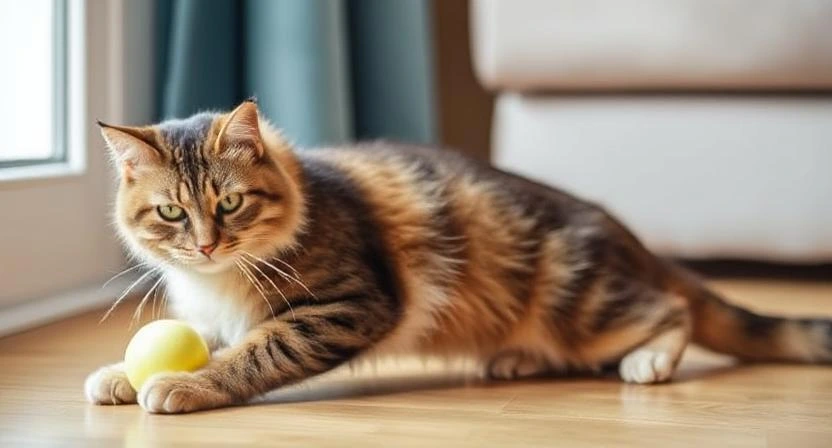How to Keep Indoor Cats Physically and Mentally Active

Keeping your indoor cat healthy isn’t just about food and litter boxes. Cats are natural hunters and explorers, and indoor life can sometimes limit their physical and mental stimulation. Without proper activity, cats can develop obesity, stress, or behavioral problems. This guide will show you practical ways to keep your indoor cat active, happy, and engaged every day.
🏃 Why Physical and Mental Activity Is Important
Indoor cats often have fewer opportunities to exercise and explore, which can lead to:
- Weight gain and obesity
- Boredom and stress
- Destructive behavior (scratching furniture, knocking things over)
- Reduced lifespan and overall health
Regular physical and mental activity keeps your cat fit, sharp, and emotionally balanced.
🐾 Fun Ways to Encourage Physical Activity
1. Interactive Play Sessions
Use toys like feather wands, laser pointers, or small balls to mimic hunting behavior. Daily play sessions of 10–15 minutes can make a big difference.
2. Cat Trees and Climbing Structures
Cats love vertical spaces. Cat trees, shelves, or climbing towers give them exercise and a safe vantage point to survey their environment.
3. Puzzle Feeders and Treat Dispensers
Encourage movement and problem-solving by hiding food or treats in puzzle toys. This engages their minds while promoting physical activity.
4. Rotating Toys
Keep toys interesting by rotating them every few days. This prevents boredom and keeps your cat curious and active.
5. Safe Outdoor Time
If possible, use a harness and leash for short walks, or provide a secure outdoor cat enclosure for fresh air and new sights.
🧠 Ways to Stimulate Your Cat Mentally
1. Training and Tricks
Cats can learn tricks just like dogs! Simple commands like “sit,” “high five,” or target training provide mental stimulation and strengthen your bond.
2. Interactive Play with Humans
Talking, chasing, or hiding toys for your cat encourages thinking and problem-solving.
3. Sensory Enrichment
Introduce new textures, scents, and sounds—like crinkly paper, catnip, or safe nature sounds—to keep your cat’s senses engaged.
4. Window Watching
A perch near a window lets your cat watch birds, squirrels, and the outside world, providing mental stimulation without leaving home.
5. Companion Animals
If your cat is social, a second cat or pet-friendly animal can encourage play and activity—but introductions should be gradual and monitored.
🐱 Tips for Success
- Keep sessions short but frequent—cats respond best to bursts of activity.
- Praise and reward your cat with treats or affection.
- Observe your cat’s preferences and energy levels; not all cats like the same toys or games.
- Change up the environment occasionally—move furniture, add boxes, or rearrange toys to spark curiosity.
🌟 Final Thoughts
Keeping your indoor cat physically and mentally active is essential for their health and happiness. With daily play, enrichment, and attention, you can prevent boredom, reduce stress, and ensure your cat thrives indoors. An active cat is a happy cat—so get creative, stay consistent, and watch your feline flourish. 🐾
